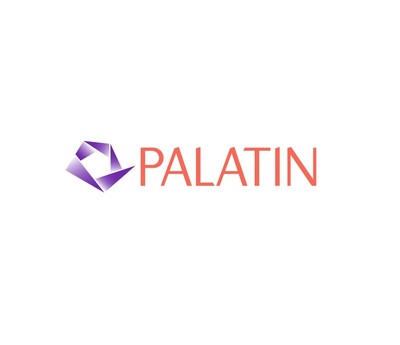Palatin Presents Data at ObesityWeek® 2025 Highlighting Promise of Melanocortin-Based Therapies for Obesity
Rhea-AI Summary
Palatin (OTCQB: PTN) presented preclinical and clinical data at ObesityWeek® 2025 highlighting melanocortin-4 receptor (MC4R) agonists for obesity treatment.
Key points: oral MC4R candidate PL7737 showed dose-dependent weight loss in DIO mice, ~50% oral bioavailability and >3-hour half-life in rats, and no hERG/Ames findings; IND-enabling toxicology is underway with an IND and Phase 1 SAD/MAD trial planned for H1 2026 and clinical data expected H2 2026. A Phase II study (BMT-801) reported that adding low-dose MC4R agonist to tirzepatide increased weight loss, was well tolerated, and helped prevent weight regain. The FDA granted Orphan Drug Designation to PL7737 for LEPR deficiency–related obesity.
Positive
- PL7737 showed ~50% oral bioavailability in rats
- IND and Phase 1 SAD/MAD planned for H1 2026 for PL7737
- Phase II BMT-801: added MC4R agonist increased weight loss and was well tolerated
Negative
- PL7737 remains preclinical: no human clinical data yet
- IND-enabling toxicology ongoing, so first-in-human timing depends on completion
News Market Reaction
On the day this news was published, PTNT gained 17.23%, reflecting a significant positive market reaction.
Data tracked by StockTitan Argus on the day of publication.
-
Oral MC4R agonist PL7737 demonstrated robust weight loss, safety, and high oral bioavailability in preclinical models
-
Clinical data supports co-administration of an MC4R agonist with tirzepatide as a safe, potentially synergistic approach to weight management
- PL7737 IND-enabling toxicology underway, with an IND submission and clinical trial initiation planned for the first half of 2026; clinical data expected in the second half of 2026
Poster #1: PL7737 – Oral MC4R Small Molecule Agonist
Title: Characterization of the MC4R Oral Small Molecule Agonist PL7737
Presenter: Carl Spana, Ph.D.
Presentation Time: November 5, 2025, 2:30 PM – 3:30 PM
PL7737 is an orally bioavailable, selective small molecule MC4R agonist under development for the treatment of obesity.
Preclinical data demonstrated:
- Dose-dependent, statistically significant weight loss in diet-induced obese (DIO) mice, with no observed effect on systolic blood pressure.
- Favorable pharmacokinetic profile, including approximately
50% oral bioavailability and a half-life exceeding three hours in rats. - Encouraging safety and tolerability, with no hERG or Ames assay findings and no toxicity observed in a 28-day non-GLP rat study.
"These results position PL7737's potential as a differentiated oral therapy for obesity," said Carl Spana, Ph.D., President and Chief Executive Officer of Palatin. "While additional studies are underway, the strength and consistency of the early data reinforce confidence in its safety, efficacy, and broad therapeutic potential across diverse obesity mechanisms."
Poster #2: Co-Administration of MC4R Agonist and Tirzepatide in Obese Patients
Title: Co-Administration of Bremelanotide with Tirzepatide in Participants with Obesity
Presenter: Jesse Richards, M.D.
Presentation Time: November 6, 2025, 2:30 PM – 3:30 PM
This Phase II study ("BMT-801") evaluated the safety and efficacy of combining bremelanotide, a melanocortin-4 receptor agonist, with tirzepatide (GLP-1/GIP agonist) in patients with obesity.
Key findings include:
- Adding a low dose of an MC4R agonist led to greater weight loss compared to tirzepatide alone.
- No new safety concerns were observed; the combination was well tolerated, with no increase in gastrointestinal side effects.
- Sustained weight maintenance was seen, as low-dose MC4R activation helped prevent weight regain after stopping tirzepatide treatment.
"The BMT-801 proof-of-concept study provides meaningful clinical evidence supporting the role of MC4R agonists as complementary to incretin-based therapies," continued Dr. Spana. "These results further strengthen our confidence in advancing our next-generation oral small molecule and long-acting peptide MC4R agonists, which have the potential to expand treatment options and improve outcomes for people with obesity."
Ongoing and Future Development
- PL7737 (oral MC4R agonist): IND-enabling toxicology studies are ongoing, with an IND filing and initiation of a Phase 1 single- and multiple-ascending dose (SAD/MAD) trial expected in the first half of 2026.
- Next-generation selective peptide MC4R agonists: Designed for once-weekly subcutaneous dosing, with an IND filing and Phase 1 SAD/MAD trial planned for mid-2026.
- Phase 1 studies are expected to include patients with hypothalamic obesity.
The
ObesityWeek®
ObesityWeek® is an annual international conference for obesity researchers and clinicians hosted by The Obesity Society. The conference presents developments in evidence-based obesity science, research, treatment, prevention, advocacy, and public policy. Held annually in various
Melanocortin-4 Receptor Agonists Effect on Obesity
Hypothalamic neurons expressing the melanocortin-4 receptor (MC4R) play a central role in regulating stored energy, food intake, and body weight. Genetic mutations that inhibit signaling through the MC4R pathway lead to hyperphagia, decreased energy expenditure and early-onset obesity; such mutations have been identified as the cause of several rare genetic obesity disorders. MC4R agonism represents an attractive target for potential obesity treatments.
About Hypothalamic Obesity
Hypothalamic obesity is a rare and severe form of obesity caused by dysfunction or damage to the hypothalamus, the region of the brain that regulates appetite, satiety, and energy balance. Hypothalamic obesity can occur as an acquired condition, most commonly after surgery or radiation therapy for brain tumors such as craniopharyngioma, or as a congenital disorder associated with genetic syndromes and developmental abnormalities affecting hypothalamic function. Individuals with hypothalamic obesity typically experience rapid, excessive weight gain, uncontrollable hunger, and profound metabolic disturbances that are resistant to conventional diet, exercise, and behavioral interventions. There are currently no approved pharmacologic treatments specifically indicated for hypothalamic obesity, representing a significant unmet medical need.
About Melanocortin Receptor Agonists
The melanocortin receptor ("MCR") system has effects on inflammation, immune system responses, metabolism, food intake, and sexual function. There are five melanocortin receptors, MC1R through MC5R. Modulation of these receptors, through use of receptor-specific agonists, which activate receptor function, or receptor-specific antagonists, which block receptor function, can have medically significant pharmacological effects.
About Palatin
Palatin is a biopharmaceutical company developing first-in-class medicines based on molecules that modulate the activity of the melanocortin receptor systems, with targeted, receptor-specific product candidates for the treatment of diseases with significant unmet medical need and commercial potential. Palatin's strategy is to develop products and then form marketing collaborations with industry leaders to maximize their commercial potential. For more information, visit the company's website at www.palatin.com and follow us on X (formally Twitter) @PalatinTech.
Forward-looking Statements
Statements in this press release that are not historical facts, including statements about future expectations of Palatin Technologies, Inc., such as statements about Palatin products in development, clinical trial results, potential actions by regulatory agencies, regulatory plans, development programs, proposed indications for product candidates, and market potential for product candidates are "forward-looking statements" within the meaning of Section 27A of the Securities Act of 1933, Section 21E of the Securities Exchange Act of 1934 and as that term is defined in the Private Securities Litigation Reform Act of 1995. Palatin intends that such forward-looking statements be subject to the safe harbors created thereby. Such forward-looking statements involve known and unknown risks, uncertainties and other factors that could cause Palatin's actual results to be materially different from its historical results or from any results expressed or implied by such forward-looking statements. Palatin's actual results may differ materially from those discussed in the forward-looking statements for reasons including, but not limited to, results of clinical trials, regulatory actions by the FDA and other regulatory and the need for regulatory approvals, Palatin's ability to fund development of its technology and establish and successfully complete clinical trials, the length of time and cost required to complete clinical trials and submit applications for regulatory approvals, products developed by competing pharmaceutical, biopharmaceutical and biotechnology companies, commercial acceptance of Palatin's products, and other factors discussed in Palatin's periodic filings with the Securities and Exchange Commission. Palatin is not responsible for updating events that occur after the date of this press release.
Palatin Technologies® is a registered trademark of Palatin Technologies, Inc.
![]() View original content to download multimedia:https://www.prnewswire.com/news-releases/palatin-presents-data-at-obesityweek-2025-highlighting-promise-of-melanocortin-based-therapies-for-obesity-302606887.html
View original content to download multimedia:https://www.prnewswire.com/news-releases/palatin-presents-data-at-obesityweek-2025-highlighting-promise-of-melanocortin-based-therapies-for-obesity-302606887.html
SOURCE Palatin Technologies, Inc.








